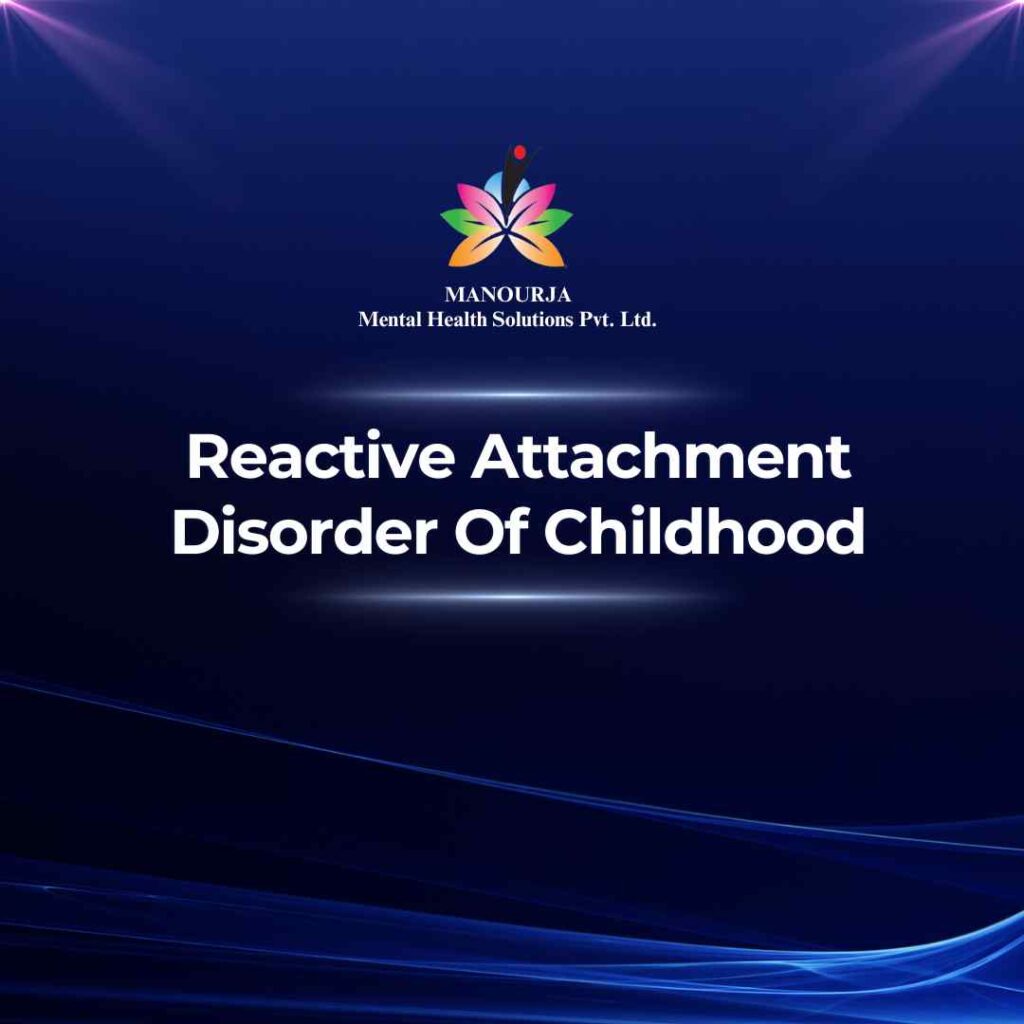Reactive Attachment Disorder of Childhood

Reactive Attachment Disorder (RAD) is a severe and relatively rare condition characterized by significant disturbances in a child’s ability to form healthy emotional attachments with others. It typically arises from grossly insufficient care during early childhood, such as severe neglect, abuse, frequent changes in caregivers, or lack of a stable caregiver, which impairs the child’s ability to develop expected emotional bonding with their primary caregiver.
Symptoms of Reactive Attachment Disorder
- Inhibited, Emotionally Withdrawn Behavior: Children with RAD often show consistent patterns of withdrawal, emotional detachment, and lack of responsiveness to comforting. They might not seek comfort from any caregiver when distressed and typically do not respond to attempts at comforting.
- Minimal Social and Emotional Responsiveness: Children with this disorder may appear sad, irritable, or fearful for no apparent reason when interacting with adults, including caregivers.
- Limited Positive Affect: They display a limited range of positive emotions during interactions with others, showing little to no signs of joy, excitement, or enthusiasm.
- Unexplained Irritability, Sadness, or Fearfulness: Even during non-threatening interactions with caregivers, children with RAD may exhibit irritability, sadness, or fear.
Forms of Reactive Attachment Disorder
RAD can manifest in two forms:
- Inhibited Form: Where the child is extremely withdrawn and emotionally unresponsive to others. They rarely seek comfort or respond to comforting.
- Disinhibited Form: Now classified separately as Disinhibited Social Engagement Disorder (DSED), this form involves indiscriminate sociability or a lack of selectiveness in choosing attachment figures. Children with this form might overly familiarize themselves with relative strangers and exhibit inappropriate, boundary-violating behaviors.
Treatment of Reactive Attachment Disorder
The treatment of RAD involves creating a stable, nurturing environment and providing appropriate therapies:
- Stable Environment: Ensuring the child lives in a stable environment where they can form lasting attachments is crucial. This often means placing the child in a long-term home where caregivers can provide consistent and ongoing nurturance.
- Psychological Counseling: Therapy for children with RAD typically involves helping them to establish a sense of safety and trust. Treatment may involve individual therapy and family therapy, where caregivers learn how to interact with the child to foster attachment.
- Parenting Education: Caregivers might need detailed guidance and support to deal with the challenges posed by RAD. Training on sensitive, responsive caregiving is essential.
- Structured Interactions: Therapeutic interactions that are designed to encourage the child to engage positively and build trust can be beneficial. Techniques might include structured play therapy where interactions are predictable and designed to enhance attachment security.
- Treatment of Comorbid Conditions: It’s common for children with RAD to have other psychiatric issues, such as ADHD or anxiety disorders. Addressing these concurrent conditions is vital for overall treatment success.
- School-Based Interventions: Collaboration with school personnel is crucial to ensure that the child receives consistent support across all environments. Educators should be informed about the child’s condition and the best ways to support their emotional and educational needs.
The prognosis for RAD varies but generally improves with early and appropriate interventions, especially those aimed at placing the child in a supportive, stable caregiving environment. Continuous, reliable caregiver engagement is crucial for helping these children develop healthier relationships and attachment patterns.
At MANOURJA, we believe in the transformative power of counseling. Our experienced therapists offer a safe and supportive space where you can explore your thoughts, emotions, and challenges. Through personalized counselling sessions, we’ll work together to develop coping strategies, build resilience, and achieve lasting positive change. Discover the path to a healthier, happier you with MANOURJA counselling services.
MANOURJA Rehabilitation Services
At MANOURJA, we’re dedicated to helping you in rebuild your life, after difficult times. Our rehabilitation services focus on understanding what you need to move forward, whether you’re recovering from addiction, trauma, or any psychological – social challenges. We create personalized plans, that are all about helping you, regain your strength and find hope again. With a caring team by your side, you’ll have the support to make real progress and take steps toward a brighter, healthier future.
